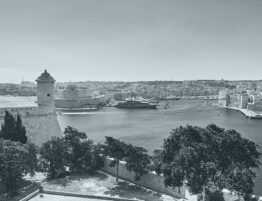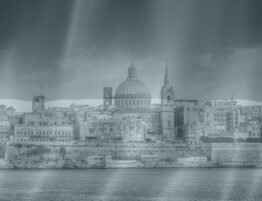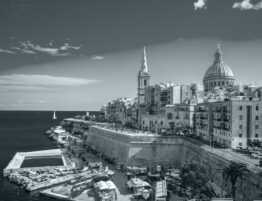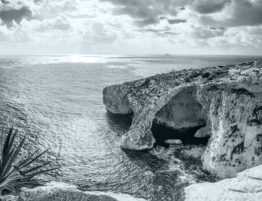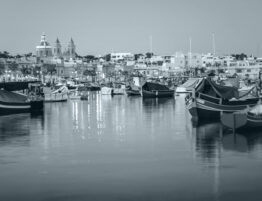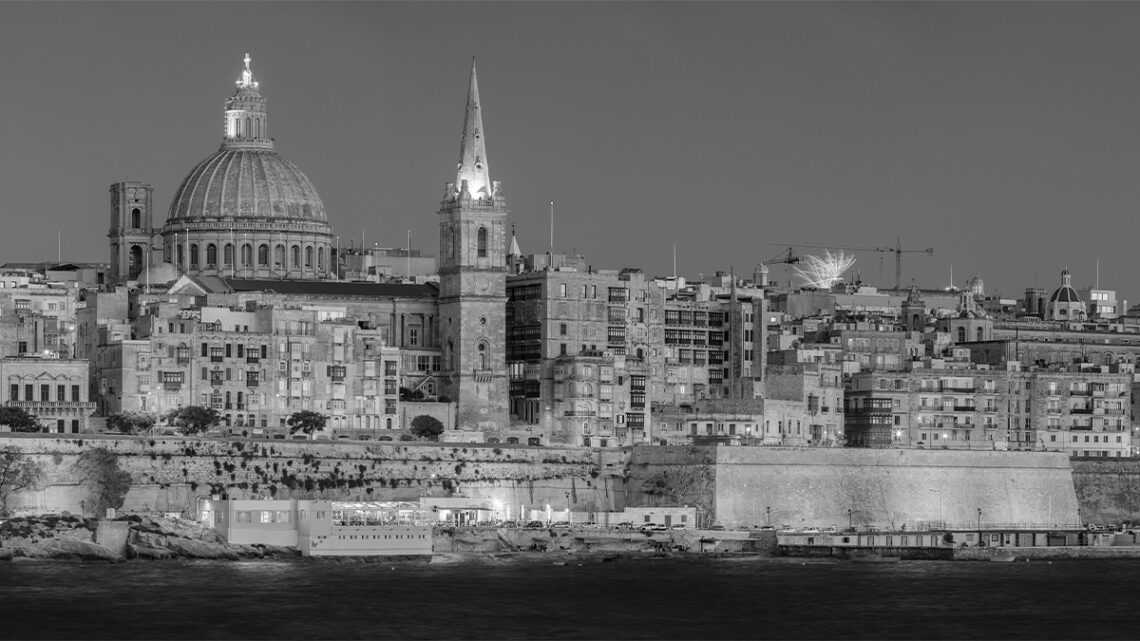
Malta is a small archipelago located in the Mediterranean Sea, south of Italy. The island-state boasts a warm climate, an English-speaking population and a rich history. Thanks to its diverse cultural past, it has been a growing tourist and expat destination year after year. Popular cities in Malta include the capital and port city of Valletta, which is a UNESCO world heritage site, the old capital city of Mdina, Sliema, Saint Julians and Saint Paul’s Bay. Equally popular is Gozo, Malta’s sister island which is ideal for those looking for a tranquil lifestyle.
Why move to Malta?
Whether one wants to relocate to Malta to live, work, study, conduct business, or retire, Malta is the perfect place to consider. Despite its small area, Malta offers as many opportunities to expats as any other European country. With a warm climate throughout the year, breath-taking scenery, and fascinating historical sites to explore, Malta is an amazing second home for those who are looking at relocating to a vibrant European country. However, it is essential to know about the ins and outs of a country if you plan on living there for a long time.
Malta Residency Schemes
There are various residence schemes which facilitate the acquisition of a residence permit in Malta. European nationals moving to Malta can do so by applying for residency under the Malta Ordinary Residence Scheme or The Residence Programme. Non-EU nationals are required to apply for residency under a residence programme such as the Malta Permanent Residence Programme, the Malta Global Residence Programme or the Malta Nomad Residence Permit.
What are the Best Places to Live in Malta?
Accommodation is the first thing which comes to mind when moving to a new country. Depending on your preference you can buy a property inland for a quieter life or opt for housing by the sea where amenities are readily accessible.
- St Julian’s and Sliema are popular due to the number of shopping malls, restaurants, and clubs for people who want an entertaining lifestyle. Both are vibrant towns with plenty of activities and attractions and boast a seaside promenade where one can enjoy a nice walk or jog.
- Valletta is the capital city where the main government offices and private sector workplaces are located. It also includes a variety of amenities especially for digital nomads with co-working spaces, cafes, and bars. It is also the ideal location to experience the true Maltese culture, although renting or purchasing a property in Valletta is quite expensive.
- Mellieha is located at the northern part of Malta and is a popular summer destination for both tourists and locals. It boasts of sandy beaches, natural environment and is home to Popeye Village which is a very popular tourist attraction.
- Gozo, Malta’s sister island is a naturally beautiful place which is ideal for people who love tranquillity. Crossing from Malta to Gozo requires a 30-minute ferry ride. With a population of just 40,000 inhabitants, Gozo is much quieter when compared to the main island of Malta. It has a unique charm, and its beauty lies in its greenery, quietness, and tranquillity it offers.
What is the Climate in Malta?
Malta enjoys a typical Mediterranean climate with mild winters and warm summers. Summers are usually hot and dry as rain mainly occurs only during winter. Temperatures usually start rising during spring when the rain becomes less frequent as days also become more longer. The Maltese islands enjoy a daily average of around 12 hours of sunshine in summer and around 6 hours in winter.
The average temperature is around 23 degrees Celsius during the day while going down to sixteen degrees Celsius at night.
What are the Languages Spoken in Malta?
Malta’s official languages are Maltese and English. Maltese is the islands’ national language and is a language of semitic origin which over the years incorporated many words from different Maltese colonisers, mainly English, Italian and French. Due to the fact that Malta was a British colony up to 1964, one can see a number of British remnants such as the red phone and letter boxes, street signs, and the language itself. Government announcements and traffic signs are done in both languages.
The Italian language is also widely spoken in Malta given the close proximity to Italy.
What is the Cost of Living in Malta?
Malta offers a high quality of life at considerably affordable prices depending on one’s lifestyle. The rental of a one-bedroom apartment, daily needs and utilities would require a spend of around €1,600 a month. In Malta, a variety of properties are available for sale or rent including apartments, townhouses, terraced houses, houses of character and villas. 1 to 2-bedroom apartments away from the city centre are available for rent at around €800 a month while those close to the centre can be rented out for €1,000 or more monthly. It is also important to mention that due to increased demand from expats, property prices are rapidly rising. Utility bills can be covered with approximately €100 and €200 a month. Public transport in Malta is free of charge for Maltese citizens and residents who register for Tallinja Card. Supermarket items aren’t too pricey except for those items that are imported and fresh meat.
What are the Job Opportunities in Malta?
Malta has one of the lowest unemployment rates in Europe and jobs as well as entrepreneurial opportunities are abundant here. Some of the trending fields in Malta are in the fields of tourism, gaming, finance, and Information technology. Non-EU citizens will be required to apply for a work permit when moving to Malta.
What is the Political System in Malta?
Malta is a democratic republic with a parliament as its legislative branch, the cabinet of ministers forming part of the executive branch, and finally a judicial branch which is made up of the courts of Malta. The Maltese parliament is elected by the general public for a five year period. The head of state is the president, which is appointed by the parliament. The Prime Minister is the head of the government and oversees a cabinet of ministers.
How is the Healthcare in Malta?
Malta is ranked within the top 5 healthcare systems of the world by the World Health Organisation. The medical care system is available both through public and private hospitals. In Malta, there is one main public hospital (Mater Dei) which is supported by a network of regional health centres. Healthcare is free of charge for all Maltese citizens and residents who pay social security taxes. In addition, tourists from EU countries who hold a European Health Insurance card can also benefit from free healthcare whilst on holiday in Malta. The country also has a number of private hospitals and clinics which offer a broad range of services from blood tests, to scans and surgeries.
What is the Education System in Malta?
Malta’s educational system is one of the top-rated ones in Europe and mostly follows a British curriculum. It is divided into independent, church and state schools. State schools are found in all the main localities in Malta and Gozo and are free of charge to Maltese citizens and to children of those working in Malta. Transport to and from schools is also free, as are books and study material. Church schools are operated by the Catholic church in Malta however due to an agreement with the state, they also do not charge any fees. There are also a good number of independent private schools in Malta which charge tuition fees. In Malta one can also find schools with cater for students with disabilities or learning difficulties.
The Maltese educational system is structured in four stages: pre-primary (ages three to five), primary (ages five to 11), secondary (ages 11 to 18) and tertiary education. After these stages of education, students can then pursue education at the Malta Junior College, the Malta College for Arts, Science and Technology (MCAST) or the Institute of Tourism Studies.
In terms of tertiary education, Malta has one university (the University of Malta) which is the highest educational institution on the island. It offers a wide range of full time and part time degrees and diploma courses.
What is the Process to Relocating to Malta?
To learn more about the process to relocating to Malta, you can contact us and our team of lawyers and professionals will guide you throughout the entire process.
